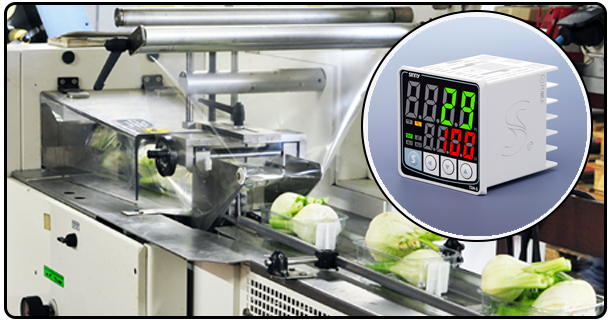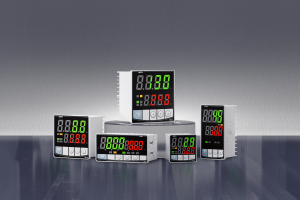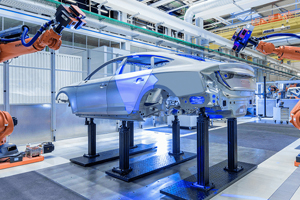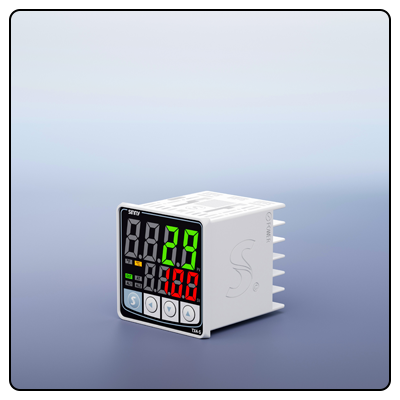Mastering Industrial Precision: Maximizing Efficiency with PID Temperature Controllers
Discover how PID controllers play an essential part in modern industrial temperature management by offering precision, energy savings and future growth potential for efficient temperature management.
1. Introduction
In industrial processes, maintaining precise temperature control cannot be overemphasized - it serves as the cornerstone for reliability and quality of final products. PID (Proportional-Integral-Derivative) temperature controllers provide sophisticated devices designed to make sure temperatures stay within their target range with minimum variance - they're an invaluable way to boost efficiency across various industrial processes. In this article we dive deep into their workings while showing their benefits as potential efficiency boosters for various industrial processes.
2. Understanding PID Controllers
At the core of every PID controller lies its control loop feedback mechanism, which continuously calculates an error value as the difference between setpoint and measured temperatures. PID controllers use three unique parameters - Proportional, Integral and Derivative. Each parameter addresses different aspects of control process. Proportional components respond quickly and precisely to temperature discrepancies; Integral components account for past errors that accumulate; Derivative components anticipate future errors based on rate-of-change predictions; these three elements work harmoniously together so the PID controller can efficiently restore temperature back towards setpoint levels.
3. Advantages of PID Temperature Controllers
Implementing PID temperature controllers provides many benefits. Their precision allows them to maintain consistent temperatures that reduce risks due to temperature variations; by eliminating temperature overshoots they promote energy efficiency; their stability ensures improved product quality as well as reduced operational costs for production processes.

4. PID Controllers in Cooling Systems
When it comes to cooling systems, PID controllers play a vital role in upholding product integrity by maintaining optimal temperatures across a variety of products in industries that rely heavily on them - like food and pharmaceutical production lines. They're integral parts of industrial refrigeration units and air conditioning units where they regulate cooling elements to guarantee product safety and lifespan.
5. PID Controllers in Heating Systems
PID controllers play a pivotal role in heating systems. From industrial furnaces and kilns, to residential ovens and water heaters - their application ranges across industrial furnaces, kilns and ovens alike; providing accurate temperature regulation allows processes like metal treatment, baking or hot water provision to take place safely and consistently.
6. Auto-Tuning PID Controllers
Modern PID controllers feature remarkable auto-tuning functionality, automatically determining optimal PID parameters to match specific processes without manual recalibration, responding quickly and responsively to changes in system dynamics without manual recalibration; saving both time and enhancing responsiveness to process variations for greater efficiencies gains. This auto-tune functionality not only saves time but also increases responsiveness resulting in even greater efficiencies gains.
7. Case Studies and Applications
PID temperature controllers' effectiveness is demonstrated not solely theoretically but also through numerous case studies across industries. Plastic injection molding machines that incorporate PID controllers have resulted in significantly fewer defective parts produced; similarly in food, PID-controlled ovens enable bakeries to consistently create delicious baked bread products of consistent quality and texture using these controls.
8. Future of PID Temperature Control
Looking forward, PID temperature control appears promising. With smart technologies and the Internet of Things (IoT), PID controllers may become even smarter and integrated - capable of communicating with other devices for predictive maintenance purposes and further optimization processes.
9. Conclusion
PID temperature controllers are essential tools in the pursuit of industrial efficiency. Their precise control mechanisms, combined with energy savings and process stability benefits make them invaluable assets in temperature-dependent operations. We expect PID controllers will continue evolving alongside technology advances - playing an ever more vital role in managing sustainable industrial processes efficiently and sustainably.
- Maximizing Quality with PID Temperature Controllers | Precise Process Regulation
- Advanced Applications of PID Temperature Controllers in Industry






















